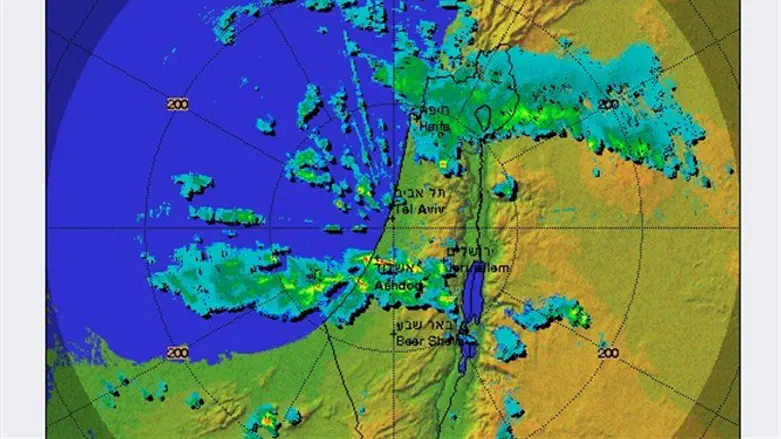
Mazel tov! Parshat BaMidbar (meaning "in the desert") is my bar mitzvah portion. We read it this past Shabbat The prayer service of what was to be my introduction and my departure from Judaism was held in a Unitary Church in America.
Way back then, my family belonged to a reform congregation. Our “temple” was undergoing alterations, so celebrations were held in the nearby church.
Like the name of this week’s Torah portion, my initial encounter with Judaism was a spiritual wilderness. We lit Hannukah candles at home, but we also had a Christmas tree in the house, so that my brother and I wouldn’t feel different from all of our gentile friends. My parents sent me to Hebrew school three times a week to learn some Hebrew words and a little something about Jewish history and the holidays.
Because the hours of Hebrew school conflicted with afternoon sports, I couldn’t be an active member of sport teams and participate in league games. I hated Judaism and didn’t want to have a bar mitzvah. But my parents insisted. Besides the first verse of the Haftora, all I remember is receiving a lot of fountain pens. Maybe that’s why I became a writer. A photograph outside the church shows me holding the Hebrew prayer book upside down.
Growing up Jewish in America is like having your bar mitzvah in a church. Even in a Hasidic neighborhood in Brooklyn, when you cross the street you are confronted with stores selling lobsters and Christmas lights. As Rabbi Kook writes in the first chapter of “Orot,” it is impossible to attain a pure, unpolluted understanding of Torah in the Diaspora. The spiritual pollution there is so great, even Torah scholars can get lost in the darkness.
Not surprisingly, all my old friends and cousins married non-Jews. All of them! We read reports about assimilation throughout the Diaspora, fifty-percent, sixty percent, seventy. The nightmare is a steadily growing tragedy. Today, half of our Nation is being wiped out through the fires of Gentile embraces.
Once, when the painter Chaim Struck visited Rav Kook, the Chief Rabbi had a special request of him. He said that the painter was obligated to use his artistic talent to portray the beauty of the Holy Land in his canvases, in order to inspire Jews from the Diaspora to make Aliyah and dwell in the Land.
The same is true for writers and writing. Everyone who can write has the holy obligation to publicize the praises of Eretz Yisrael, so that Jews in the Diaspora will be encouraged to live here. Whether in letters to family and friends still in foreign, Gentile lands; or in blogs, op-eds, and articles describing the incomparable quality of Jewish life in the Holy Land, the written word can be a powerful tool to promote Aliyah.
On many occasions, new olim have told me that my essays and books about the mitzvah of living in Israel influenced their decision to experience life as a sabra (Israeli).
Another way to have a positive influence is by writing comments in talkback sections. Many times, only the detractors and complainers bother to send in their rantings and rebuttals. Readers with positive things to say don’t bother to write. This unfortunate phenomena is nothing new.
Soon, in our weekly Torah reading, we will come to the tragic story of the Spies in the Wilderness. When the Spies returned from exploring the Land of Israel, their evil report of the Land went viral. Everyone cried out, “Gevalt! There are giants in the Land. Gevalt!” Only two brave Jews, Joshua and Caleb, had the courage to talk back in a positive fashion. “It is a good Land!” they declared.
We can learn from the lesson. Don’t be a part of the silent majority. Don’t be afraid to speak out and praise the Land whenever and wherever you can. Let your voice be heard!
